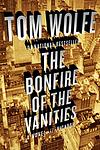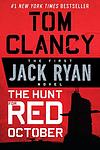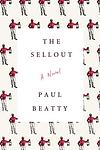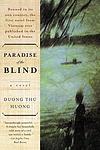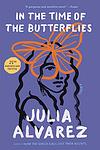The Greatest "Political" Books Since 1980
Click to learn how this list is calculated.
This list represents a comprehensive and trusted collection of the greatest books. Developed through a specialized algorithm, it brings together 300 'best of' book lists to form a definitive guide to the world's most acclaimed books. For those interested in how these books are chosen, additional details can be found on the rankings page.
Genres
The "Political" category of books encompasses works that explore the theory, practice, and history of government and politics. These books may cover topics such as political ideologies, political systems, political institutions, political movements, and political leaders. They may also examine the relationship between politics and other areas of society, such as economics, culture, and international relations. Political books can be both informative and thought-provoking, offering readers insights into the complexities of the political world and the challenges of governing in a democratic society.
Countries
Date Range
Reading Statistics
Click the button below to see how many of these books you've read!
Download
If you're interested in downloading this list as a CSV file for use in a spreadsheet application, you can easily do so by clicking the button below. Please note that to ensure a manageable file size and faster download, the CSV will include details for only the first 500 books.
Download-
1. The Handmaid's Tale by Margaret Atwood
Set in a dystopian future, this novel presents a society where women are stripped of their rights and are classified into various roles based on their fertility and societal status. The protagonist is a handmaid, a class of women used solely for their reproductive capabilities by the ruling class. The story is a chilling exploration of the extreme end of misogyny, where women are reduced to their biological functions, and a critique of religious fundamentalism.
-
2. White Teeth by Zadie Smith
This novel follows the lives of two friends, a working-class Englishman and a Bangladeshi Muslim, living in London. The story explores the complex relationships between people of different races, cultures, and generations in modern Britain, with themes of identity, immigration, and the cultural and social changes that have shaped the country. The narrative is enriched by the characters' personal histories and the historical events that have shaped their lives.
-
3. American Pastoral by Philip Roth
This novel tells the story of Seymour "Swede" Levov, a successful Jewish-American businessman and former high school athlete from Newark, New Jersey. Levov's happy and conventional upper middle class life is ruined by the domestic social and political turmoil of the 1960s during the presidency of Lyndon B. Johnson, which in the novel is seen through the eyes of the narrator, Nathan Zuckerman, a budding writer who idolizes the Levovs. The novel portrays the impact of this turmoil on Levov and his family, particularly his rebellious daughter who becomes involved in revolutionary political activities.
-
4. Bonfire of the Vanities by Tom Wolfe
This novel follows the life of a successful Wall Street bond trader who, after a wrong turn in the Bronx, finds his life spiraling out of control. After a hit-and-run accident in a predominantly black neighborhood, he becomes the target of a political witch hunt, exacerbating racial tensions in the city. As the protagonist's world unravels, the story provides a satirical commentary on 1980s New York City, exploring themes of racism, classism, politics, and greed.
-
5. Underworld by Don DeLillo
"Underworld" is a sweeping narrative that spans from the 1950s to the end of the 20th century, exploring the interconnectedness of events and the impact of the Cold War on American society. The story revolves around a diverse group of characters, including a waste management executive, a graffiti artist, a nun, and a baseball collector, among others. These characters' lives intertwine in unexpected ways, illustrating the complex web of relationships and influences that shape our world. The novel is renowned for its vivid portrayal of historical events and its profound examination of themes such as memory, technology, and waste.
-
6. Waiting for the Barbarians by J M Coetzee
The novel is set in a small frontier town of an unnamed empire, where the magistrate lives a life of civil service and relative peace. His world is disrupted when the Empire declares a state of emergency due to rumors of barbarian uprising. The magistrate becomes a critic of the Empire's brutal and inhumane methods of dealing with the perceived threat, which leads to his arrest and torture. As he tries to understand his role in the vast political machinery, he also grapples with questions of power, justice, and humanity.
-
7. Persepolis by Marjane Satrapi
This graphic novel is a memoir that provides a personal account of the author's childhood and young adult years in Iran during and after the Islamic revolution. The story portrays the impact of war, political upheaval, and religious extremism on ordinary people, while also exploring themes of identity, resilience, and the power of storytelling. Despite the harsh realities the protagonist faces, the narrative also includes moments of humor and warmth, providing a nuanced view of life in Iran during this tumultuous period.
-
8. The War of the End of the World by Mario Vargas Llosa
The book is a historical novel that recounts the War of Canudos, a conflict in late 19th-century Brazil over religious fanaticism, political instability, and social inequality. The story is centered around an apocalyptic movement led by a charismatic, messianic figure who convinces the poor and downtrodden to rise up against the Brazilian government, leading to a brutal and bloody conflict. The book explores themes of faith, power, poverty, and the destructive potential of fervent belief.
-
9. The Mismeasure of Man by Stephen Jay Gould
The book is a critical analysis of the history of scientific racism and biological determinism, the belief that social and economic differences among human races, sexes, and classes are inheritable, inevitable, and natural. It challenges the idea that intelligence can be measured accurately and placed in a single, linear scale. The author refutes the arguments of those who support these theories, arguing that they are based on flawed methodologies, biased data, and unverifiable assumptions. Instead, he proposes that intelligence is multifaceted and cannot be quantified simplistically.
-
10. Life & Times of Michael K by J M Coetzee
Set in South Africa during a civil war, the novel follows the journey of Michael K, a simple gardener with a cleft lip. When his mother falls ill, he attempts to take her back to her rural birthplace. After she dies en route, Michael continues the journey alone, struggling to survive in a war-torn landscape, while also being caught up in the bureaucratic red tape of the dystopian society. The story explores themes of freedom, survival, and the human spirit's resilience against adversity.
-
11. The Children of Men by P. D. James
Set in a dystopian future where mankind has become infertile, the novel centers on a history professor who becomes involved with a group of revolutionaries seeking to overthrow the oppressive government. As the world descends into chaos due to the impending extinction of the human race, a miraculous pregnancy offers a glimmer of hope. The professor must protect the pregnant woman and navigate the dangerous political landscape, while grappling with the implications of a world without children.
-
12. The Line of Beauty by Alan Hollinghurst
Set in the 1980s during the era of Margaret Thatcher's conservative government in Britain, this novel follows the life of a young gay man named Nick Guest. Coming from a middle-class background, he moves into the home of his wealthy friend's family and becomes infatuated with the opulence and power of the upper class. As he navigates his way through this new world, he also explores his sexuality, all while dealing with the societal and political implications of the AIDS crisis.
-
13. The Hunt for Red October by Tom Clancy
This novel details the story of a high-ranking Russian submarine captain who aims to defect to the United States without sparking a war between the two nations. The American government, upon receiving information about the captain's intentions, sends its best analyst to aid in the successful defection of the captain and his crew. The novel is a thrilling tale of espionage, filled with suspense and detailed technical descriptions of military technology and procedure.
-
14. The Plot Against America by Philip Roth
This novel presents an alternate history where aviator-hero and rabid isolationist Charles Lindbergh is elected President in 1940, leading the United States towards fascism and anti-Semitism. The story is narrated through the perspective of a working-class Jewish family in Newark, New Jersey, experiencing the political shift and its terrifying consequences. The narrative explores themes of prejudice, fear, patriotism, and family bonds under the shadow of a fascist regime.
-
15. The Sellout by Paul Beatty
This satirical novel follows the story of an African-American man living in a small, agrarian town on the outskirts of Los Angeles. After his father's death, he attempts to reinstate slavery and segregation in his town as a means of creating a sense of identity for himself and his community. The novel explores themes of racial identity and equality in America, challenging societal norms and expectations through its provocative narrative.
-
16. I, Rigoberta Menchú: An Indian Woman in Guatemala by Rigoberta Menchú Tum
This book is an autobiographical account of a woman who grew up in a small village in Guatemala during a time of extreme political turmoil. Despite facing poverty, racism, and violence, she becomes a prominent activist for indigenous rights. Her story provides a firsthand account of the hardships and injustices faced by the indigenous people in Guatemala, and her tireless fight for their rights eventually leads her to win the Nobel Peace Prize.
-
17. What a Carve Up! by Jonathan Coe
This satirical novel follows the story of the Winshaw family, a wealthy and corrupt British family who have a significant influence on British society in fields such as politics, business, media, and the arts. The narrative is presented through the eyes of a commissioned biographer who is trying to make sense of the family's history and their impact on society. As he delves deeper into the family's affairs, he uncovers dark secrets and becomes entangled in a complex web of deceit and murder.
-
18. The Sympathizer by Viet Thanh Nguyen
"The Sympathizer" is a gripping spy novel set during the Vietnam War. The protagonist is a half-French, half-Vietnamese army captain who is a communist double agent. After the Fall of Saigon, he moves to America with other South Vietnamese refugees and struggles to reconcile his dual loyalties as he continues to spy on his fellow countrymen in exile. The novel explores themes of identity, war, and politics, while providing a unique perspective on the Vietnam War and its aftermath.
-
19. Snow by Orhan Pamuk
Set in the small city of Kars in northeastern Turkey, the novel follows a Turkish poet who has spent several years in political exile in Germany. He returns to Turkey during a time of political unrest, with tensions high between religious and secular factions. As he becomes embroiled in the turmoil, he also becomes involved in a romantic relationship with a beautiful woman. The city is cut off from the rest of the world by a relentless snowstorm, leading to a series of tragic events. The novel is a contemplation on love, faith, and the tensions between tradition and modernity.
-
20. Paradise of the Blind by Dương Thu Hương
"Paradise of the Blind" is a poignant tale of a young Vietnamese woman's journey through life amidst the socio-political upheavals of her country. The narrative follows her struggle to reconcile her familial duties with her own personal aspirations, as she navigates through the complexities of her relationships with her mother and aunt. The book provides a critical examination of the Communist regime in Vietnam, its impact on the traditional Vietnamese family structure, and the cultural and societal changes it brought about.
-
21. On Beauty by Zadie Smith
This novel is a contemporary, multicultural exploration of family life, love, and identity. It follows the lives of two mixed-race families, the Belseys and the Kipps, who are linked by their shared professions in academia and a complex web of marital and extramarital relationships. The story is set against the backdrop of Wellington, a fictional New England town, and explores themes of race, class, and cultural clash. It also delves into the world of academia, examining the politics and conflicts that arise in that environment.
-
22. Libra by Don DeLillo
This novel is a fictionalized account of the life of Lee Harvey Oswald, the assassin of President John F. Kennedy. It explores Oswald's troubled childhood, his time in the Soviet Union, his return to America, and his involvement in a conspiracy to assassinate the president. The story is told from multiple perspectives, including that of Oswald himself, his mother, and various fictional characters, creating a complex and nuanced portrait of a man who has become a symbol of one of the most traumatic events in American history.
-
23. Before Night Falls by Reinaldo Arenas
"Before Night Falls" is an autobiographical work that chronicles the life of a young Cuban man growing up during the political turmoil of the Cuban Revolution. The protagonist, a rebellious writer and poet, grapples with his sexual identity in a society that is deeply homophobic. Despite facing persecution, imprisonment, and exile, he remains defiant and committed to his art and personal freedom. His story provides a candid and deeply personal perspective on the harsh realities of life under Fidel Castro's regime.
-
24. The White Tiger by Aravind Adiga
"The White Tiger" is a darkly humorous novel set in modern-day India that explores the country's class struggle through the eyes of an ambitious and cunning protagonist. Born in a poor village, he moves to Delhi to work as a chauffeur for a rich family. He eventually breaks free from his life of servitude by committing an act of shocking violence, and uses his newfound freedom to become a successful entrepreneur in Bangalore. The story, told through a series of letters written to the Chinese Premier, is a scathing critique of India's social and economic disparities, and the corruption that permeates all levels of society.
-
25. In the Time of the Butterflies by Julia Alvarez
In the Time of the Butterflies is a historical fiction novel that tells the story of the Mirabal sisters who were activists against the dictatorship of Rafael Trujillo in the Dominican Republic. The narrative is a blend of fact and fiction, presenting the personal lives and political involvement of the sisters, three of whom were assassinated for their roles in the resistance movement. The book explores themes of courage, sacrifice, love, and the power of women in the face of oppressive regimes.
Reading Statistics
Click the button below to see how many of these books you've read!
Download
If you're interested in downloading this list as a CSV file for use in a spreadsheet application, you can easily do so by clicking the button below. Please note that to ensure a manageable file size and faster download, the CSV will include details for only the first 500 books.
Download


